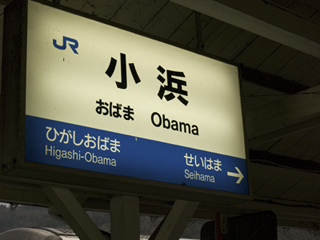What this meant in effect was to substitute China, and, to a lesser extent, North Korea for the role the Soviet Union once played in giving the alliance coherence. The allies would deepen cooperation in preparation for regional contingencies, meaning crises on the Korean Peninsula and in the Taiwan Straits.
This process intensified under the Bush administration. The U.S.-Japan security relationship became the number one goal in Asia. The U.S.-Japan alliance would be used to pressure North Korea and serve as a hedge against Chinese belligerence. Japan would dismantle longstanding constraints on its security policy – starting with the revision of Article 9 of the Japanese Constitution – and dispatch its self-defense forces abroad in support of U.S. and international missions.
In effect, Japan would take baby steps in the direction of becoming a more reliable partner for the U.S. in the face of the Chinese threat; any action would suffice, so long as Japan did not repeat its Gulf War checkbook diplomacy.
This vision of the alliance dovetailed neatly with post-9/11 U.S. foreign policy. Japan would signal its new assertiveness by supporting the global war on terror with words and deeds, with the major symbol being Mr. Koizumi’s rapid commitment of Japanese refueling ships to coalition operations in Afghanistan. At the same time, the allies would take a hard line on North Korea, charter member of the “axis of evil.”
The Bush administration cemented this North Korea policy by embracing Japan’s abductees, a signature concern of Japanese conservatives (and the Japanese people, who, according to a recent poll of Japanese foreign policy attitudes, continue to see the return of the abductees as the single most important issue in Japan’s relations with North Korea).
This last point is important, because it suggests that what changed under the Bush administration was not so much that the U.S. approach to Japan but the nature of the Japanese government: the Koizumi government marked the ascendance of a new generation of Japanese conservatives who shared Washington’s desire for a more assertive Japan free of postwar constraints.
The post-1996 alliance depended on a partnership between Japan hands in both parties and a clique of conservatives in Japan’s ruling Liberal Democratic Party (LDP), including three recent prime ministers: Mr. Koizumi, his successor Shinzo Abe, and current Prime Minister Taro Aso.
In hindsight this new alliance was a mirage. Japan’s conservatives have proved singularly incapable of delivering the changes desired by Washington. In ignoring the desires of the Japanese public for a more robust social safety net, the LDP’s conservatives have alienated voters, with the result that the opposition Democratic Party of Japan (DPJ) controls the upper house of the Diet and stands poised to win the next general election. A prolonged recession will only intensify the desire of voters for economic security at home over an active security role abroad.
More significantly, as Japan hands left the Bush administration and as the U.S. struggled to pacify Iraq, U.S. Asia policy shifted away from the alliance to broader concerns. The 1996 alliance was suited for a unipolar world.
As the balance of power in Asia shifted, the U.S. found that it needed to work with China on economic issues and the unsettled question of North Korea’s nuclear program. It could not afford the luxury of substituting Japan policy for Asia policy. The global financial crisis will only intensify this trend, as the U.S. and China negotiate the terms of a new, more sustainable economic relationship.
The reality is that the 1996 alliance was unsustainable. U.S. Japan hands assumed that their Japanese partners could deliver the changes they desired – irrespective of the wishes of the Japanese people.
Japanese conservatives assumed that in exchange for Japanese support in Iraq they could count on U.S. support in North Korea, come what may. Neither group was prepared for the advent of an era in which both the U.S. and Japan would depend on the economic health of China. Their vision of the alliance was meant for a unipolar era that no longer exists.
The challenge for the Obama administration is to present a vision for the alliance that does more than prepare for the worst-case scenario with China, a vision focused on more than security cooperation. The security relationship is important, but it cannot be the whole of the U.S.-Japan relationship.
The allies need to develop plans for coping with China’s environmental, social, and economic problems, which for the foreseeable future will be of greater concern than the modernization of the Chinese military. Taking this path will require measures to minimize the gaps that separate the U.S. and Japan from China. It will require deemphasizing the U.S. and Japan’s “shared values” and emphasizing the need for stability in the region shared by the U.S., Japan, and China.
—
This piece was originally written for the Nelson Report, Samuels International Associates, Washington DC.


The core issue the US-Japan alliance is China. However, for obvious reasons, most researchers dare not talk about China’s political system and human/civil rights movement (such as today/s Urumqi ethnic conflict). Only my book “U.S.-Japanese Alliance” concluded that China’s democratization is the key for East Asia’s security and peace.
Regards,
Jing Zhao
CPRI
http://stores.lulu.com/jingzhao